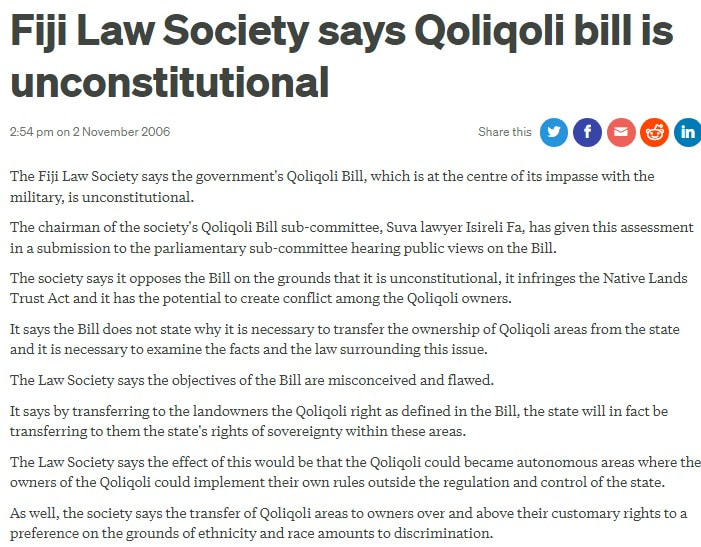Fijileaks: Regulation of Surfing Areas Decree 2010
Comment: It is not clear that ‘used’ and ‘utilised’ have different meanings, and the terms ‘surfing’ and ‘water sport’ are not defined. Does it include e.g. sportfishing? Also, does the definition extend to future use of areas of water? There is no Gazetted list, which leaves the definition very unclear. This Decree can therefore be challenged for vagueness as to its exact scope.
Fiji Labour Party has urged the government to move with extreme caution on any review of the Surfing Areas Act 2010 which could impact adversely on tourism and people’s access to foreshore and coastal waters.
“There needs to be wide and thorough consultations on this. The Coalition government must not repeat the mistakes made by the SDL government in 2006 over its predecessor the Qoliqoli Bill,” said Labour Leader Mahendra Chaudhry.
A government appointed committee is currently carrying out public consultations on its intention to amend the Surfing Areas Act 2010 which opened up Fiji waters to surfers.
Government argues that the 2010 Act does not provide for protection and fair compensation to landowners for the use of their resource nor does it demarcate specific surfing areas thus overriding traditional qoliqoli rights.
Mr Chaudhry reminded the government of the widespread controversy which had arisen when the Qarase government tried to push through the contentious Qoliqoli Bill in 2006.
It had met strong opposition from the tourism industry, the RFMF as well as human rights and civil society groups. Opposition had also come from ordinary citizens who were owners of residential or agricultural properties located close to the foreshore or on the banks of inland waterways.
“Attempts to demarcate such areas could interfere with the free passage of people and vessels through our foreshores and coastal waters. It could also curtail people’s right to freedom of movement to enjoy rivers and oceans for recreational purposes.
“While one is sympathetic to the rights of resource owners, in a modern nation these rights must be balanced against the rights of minority groups and the economic and social interests of the nation,” Mr Chaudhry said.



